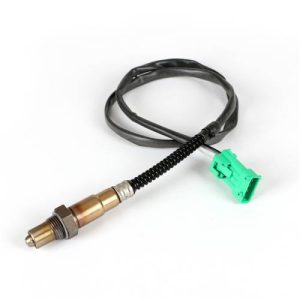Your cart is currently empty!
How Long Do Denso O2 Sensors Last?
As a manufacturer of automotive components, Denso is known for its high quality and durability. Among them, O2 Sensors are crucial components in automotive emission systems, essential for maintaining engine performance and reducing emissions. So, how long do Denso O2 sensors last?
First, it's important to understand the role of O2 Sensors. O2 Sensors monitor the oxygen concentration in the exhaust pipe, helping to adjust the air-fuel ratio and ensure the engine operates at ideal combustion conditions. By monitoring the concentration of oxygen in the exhaust gas, O2 Sensors provide feedback signals that allow the engine control unit to adjust fuel injection and ignition timing, maintaining the optimal air-fuel ratio.
Compared to other brand names, Denso O2 Sensors offer higher stability and durability. However, due to various factors such as driving habits, mileage, vehicle maintenance, and more, the lifespan of an O2 Sensor can vary. Generally speaking, Denso O2 sensors can last for 30,000 to 40,000 miles under normal conditions, but the specific lifespan also depends on the overall condition of the vehicle, driving conditions, and the frequency and quality of maintenance.
The following are some factors that affect the lifespan of Denso O2 sensors:
- Engine operating conditions: If the engine operates in a state of overheating or overcooling, the lifespan of the O2 Sensor may be shortened. Additionally, if the engine's air-fuel ratio control is inaccurate, O2 Sensors may need to adjust more frequently, thereby affecting their lifespan.
- Mileage: Vehicles with higher mileage require more frequent replacement of O2 Sensors. This is because during operation, O2 Sensors are exposed to higher temperatures and more frequent chemical reactions, resulting in faster aging of the sensor.
- Maintenance: If the owner performs regular vehicle maintenance such as changing the engine oil and air filter, it can extend the lifespan of the O2 Sensor. This is because these maintenance measures can prevent foreign objects and pollutants from entering the engine and O2 Sensor, thereby reducing wear and corrosion of the sensor.
- Driving habits: Driving habits also have an impact on the lifespan of O2 Sensors. For example, frequent high-speed driving or frequent short-distance driving can increase the burden on O2 Sensors, thereby affecting their lifespan.
Denso O2 sensors can last for a considerable length of time under normal conditions, but the specific lifespan depends on various factors. To ensure optimal performance and longevity of their O2 Sensors, vehicle owners should perform regular maintenance, maintain good driving habits, and be mindful of checking and maintaining the O2 Sensor. If any abnormality in the working of the O2 Sensor is observed or when its service life is reached, timely replacement should be done. By paying attention to these key factors, vehicle owners can ensure their Denso O2 sensors are optimizing emissions system performance for their vehicles.






Leave a Reply